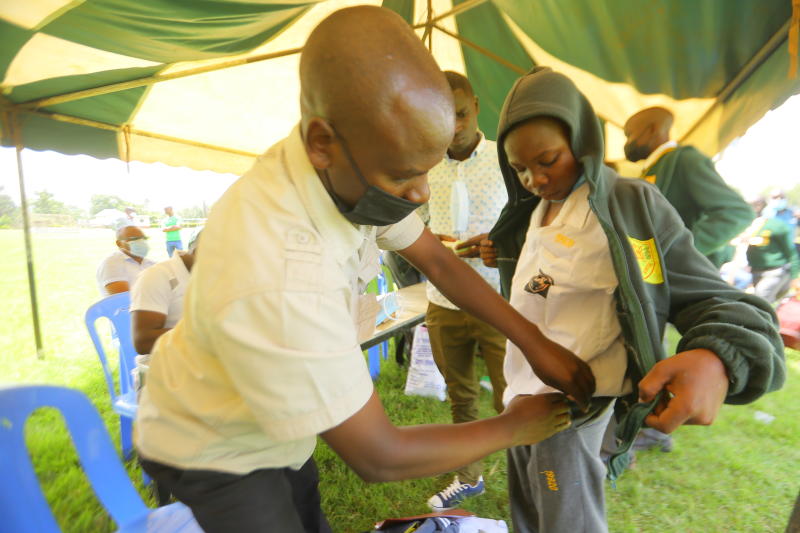×
The Standard e-Paper
Kenya’s Boldest Voice

Kisii High School teacher frisks student during opening day on January 5, 2021 [Sammy Omingo, Standard]
Education Cabinet Secretary George Magoha is in a spot for supporting mandatory drug test for high school students, which stakeholders have termed illegal.